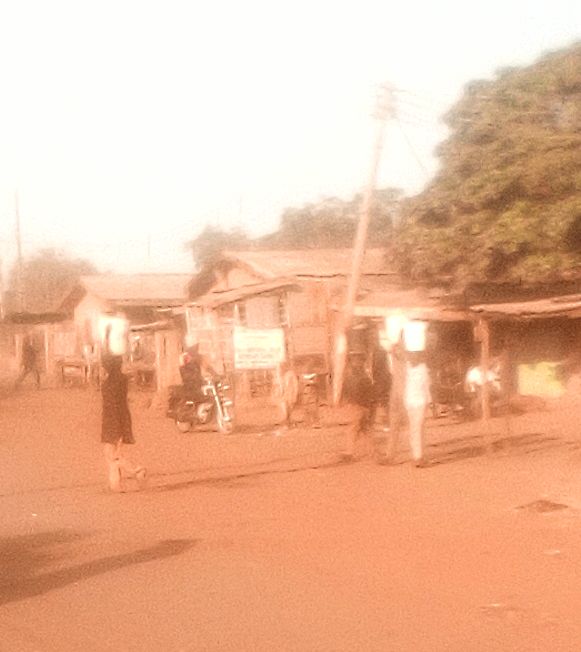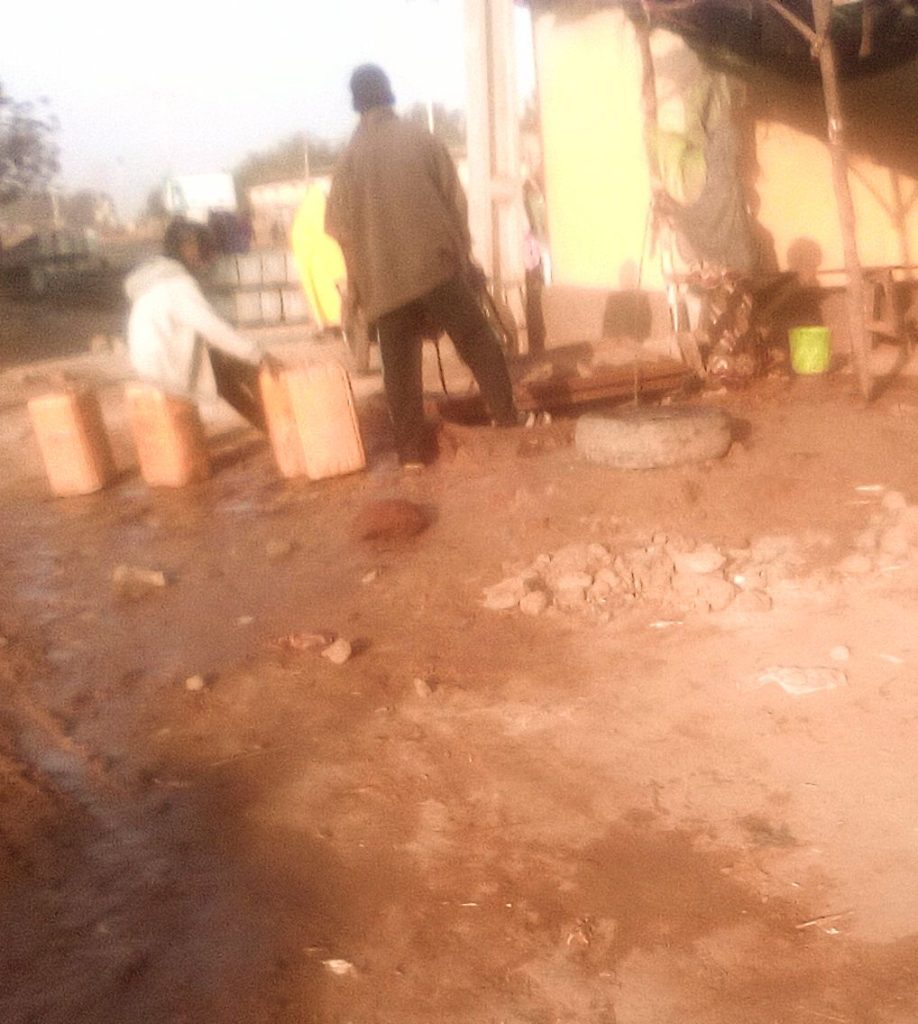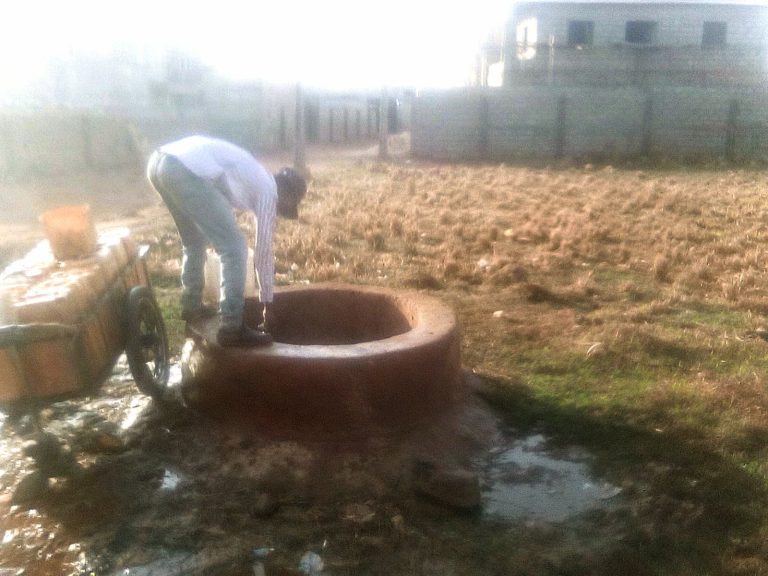In Sokoto State, where the relentless sun beats down on parched lands, water scarcity is not just a challenge; it is a daily struggle. For many residents, the lack of reliable access to water is a story of resilience, innovation, and survival. Yet, amidst this scarcity, reservoirs, boreholes, and government investments shine as glimmers of hope.
In 2024, Sokoto State tried to put its money where its mouth is. The 2024 budget allocates ₦15.8 billion to water resources projects. The Ministry of Water Resources leads the charge with ₦8.8 billion, followed by allocations for the Water Board, Rural Water and Sanitation Agency, and the Department for Rural Water. While these funds offer hope for a better tomorrow, the present remains a tale of haves and have-nots in the realm of water.
“Water scarcity is a daily struggle for my family” – Simon Emmanuel
On Offa Road, Simon Emmanuel’s family feels the weight of water scarcity every single day.
“I buy water from Mairuwa every morning at ₦100 per jerrycan. We need at least eight, costing ₦800 daily. But it is never enough,” he explained when he spoke to ASHENEWS.
“Between my children bathing, washing clothes, cleaning, and cooking, the water is gone before nightfall.”
Despite having a tap in his area, long lines of jerrycans make accessing it a challenge. According to Simon, the water only flows between 12 p.m. and 4 – 5 p.m.
“Unfortunately, the long lines of jerrycans make it difficult for his family to fetch water. It is a big challenge for us because we spend so much money on water every day,” he lamented
For families like Simon’s, the promised billions in the water budget are a distant dream.
“Fetching water daily is tough for me” – Cynthia Ezeh
In Tamaje, where taps flow only sporadically, 14-year-old Cynthia Ezeh shoulders the burden of her family’s water needs. For students like Cynthia, water scarcity disrupts more than daily chores—it reshapes routines and robs them of time.
“Every morning, I fetch water from a well near our house. I wake up at 6 a.m. to fetch water from a well near our house. But most often, the well runs dry, because so many people use it,” she shared.

Cynthia’s struggles don’t end there. On days when the well runs dry, she and her family are forced to resort to the bush instead of using their indoor toilet. “when there is no water, my family has to go without enough water for bathing or using the toilet. It is embarrassing, but what can we do?” she asked.
In 2023, the government allocated ₦3.3 billion to the Water Board and ₦3.1 billion to the Department for Rural Water but these have done little to ease the burden of people like Cynthia’. For now, Cynthia’s days begin and end with the back-breaking task of fetching water.
“The reservoir makes things easier for me” – Miss Chinwe Obi
For some, government-installed reservoirs have been lifesavers. Near the Trade Fair area, Chinwe Obi depends on one such reservoir to meet her water needs.
“The reservoir helps a lot. When it’s not available, I buy from maruwa. Once you place your bucket in the line, it will eventually be your turn. I usually spend over an hour waiting.
“Some people even leave their buckets overnight because the reservoir is turned off at 6 p.m. and only comes back on at 6 a.mThe lines are long, but I know I will eventually get water,” she said.

These reservoirs represent a slice of what the government’s ambitious budget aims to replicate across rural and urban areas. But for now, Chinwe’s reality includes waiting hours for her turn or relying on water vendors when the reservoir is dry.
“We don’t have water problems at home” – Olajumoke Yusuf
In stark contrast, for some privileged few, boreholes have turned water scarcity into a thing of the past. Olajumoke Yusuf’s family enjoys uninterrupted water access, thanks to a borehole installed by her father.
“Our borehole is connected to every room and the kitchen. We pump water whenever there is electricity and store it in two Geepee tanks,” she explained.
Olajumoke also highlighted how her family’s access to water has become a lifeline for friends. “Every weekend, my female friends come over with their dirty clothes to wash. They stay until evening before leaving. One of my friends told me they hardly get water because their tap flows only once in a while, and the long lines make it even harder to fetch water,” she said.
Olajumoke’s story is a testament to the power of private solutions, but it also underscores the disparity in water access. While her family thrives, others around them still queue for hours at taps or wells.
Promises in the pipeline
The state government’s total water budget of ₦15.8 billion may be a promise of a brighter future. From the Ministry of Water Resources’ sprawling projects to targeted interventions by the Rural Water and Sanitation Agency, these funds aim to bridge the gap between water scarcity and abundance.
The 2024 approved budget for capital expenditure on water in Sokoto State includes ₦8,804,174,750, Ministry of Water Resources, ₦3,311,100,000 to the state Water Board, ₦660,000,000 to the Rural Water and Sanitation Agency, while the Department for Rural Water was allocated ₦3,100,000,000. The total capital allocation for water resources-related projects sums up to ₦15,875,274,750.
Yet, residents like Emmanuel and Ezeh wonder when these promises will trickle down to them. Will the billions unlock more reservoirs, extend pipelines, and create boreholes where they are needed most? Or will water scarcity remain an unyielding specter for many in Sokoto?
A future fueled by water
The stories of Simon, Cynthia, Olajumoke, and Chinwe reflect the resilience of Sokoto’s residents in the face of water scarcity.
However, their struggles also highlight the urgent need for government and private stakeholders to invest in water infrastructure.
Reservoirs must be expanded to serve more communities, boreholes need to be made accessible to those in rural areas, and tap water systems must be repaired and maintained.
Beyond infrastructure, public education on water conservation can help ensure these resources are used sustainably.
Water is life, and in Sokoto, life depends on the reservoirs and boreholes that quietly keep communities afloat. But to truly quench the state’s thirst, more needs to be done. It is time to act before the crisis deepens.
From long lines at reservoirs to innovative solutions like in-house boreholes, the people of Sokoto are not just surviving—they are finding ways to thrive. Still, the hope remains that the government’s efforts will give results at ensuring that water flows freely, everywhere and for everyone.


